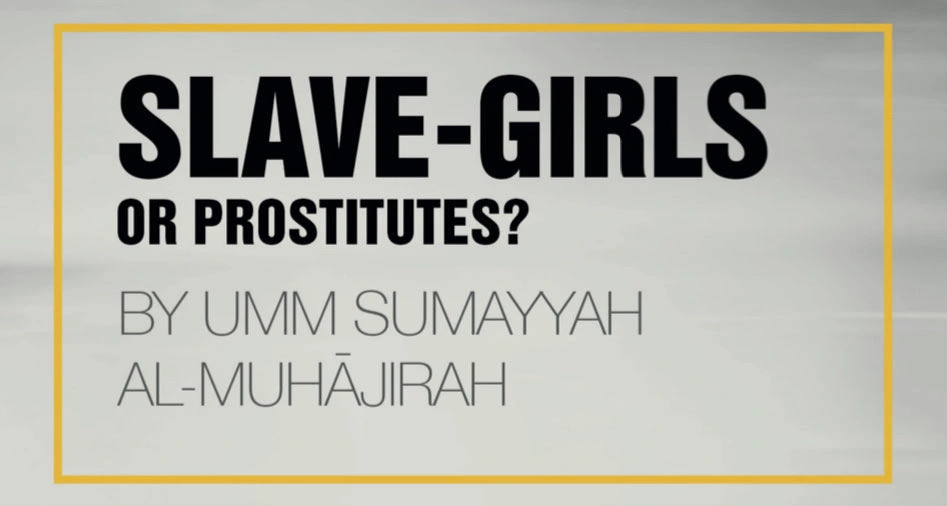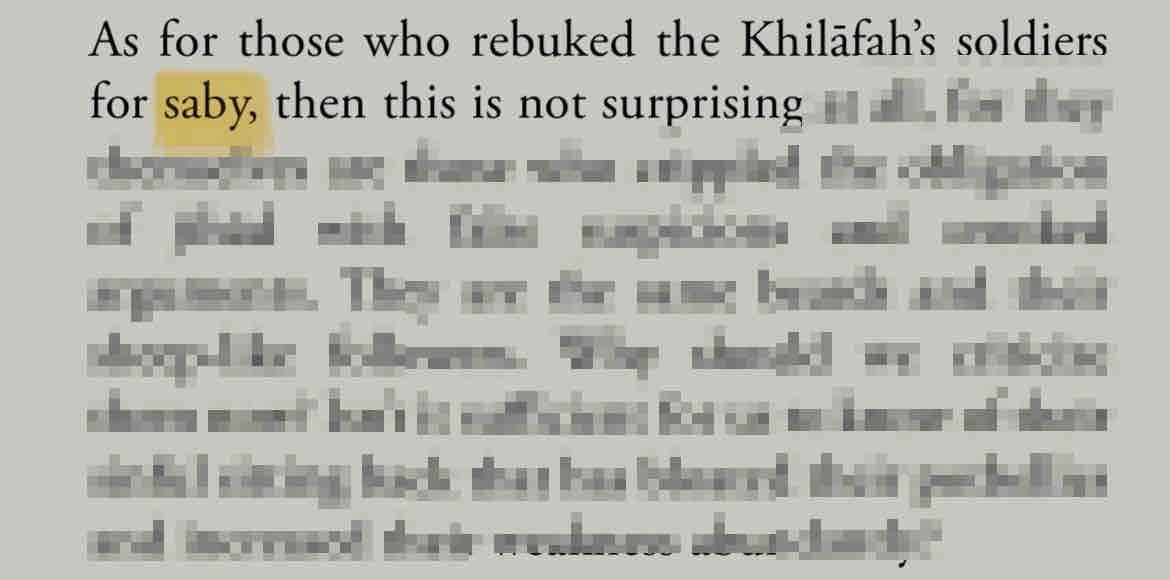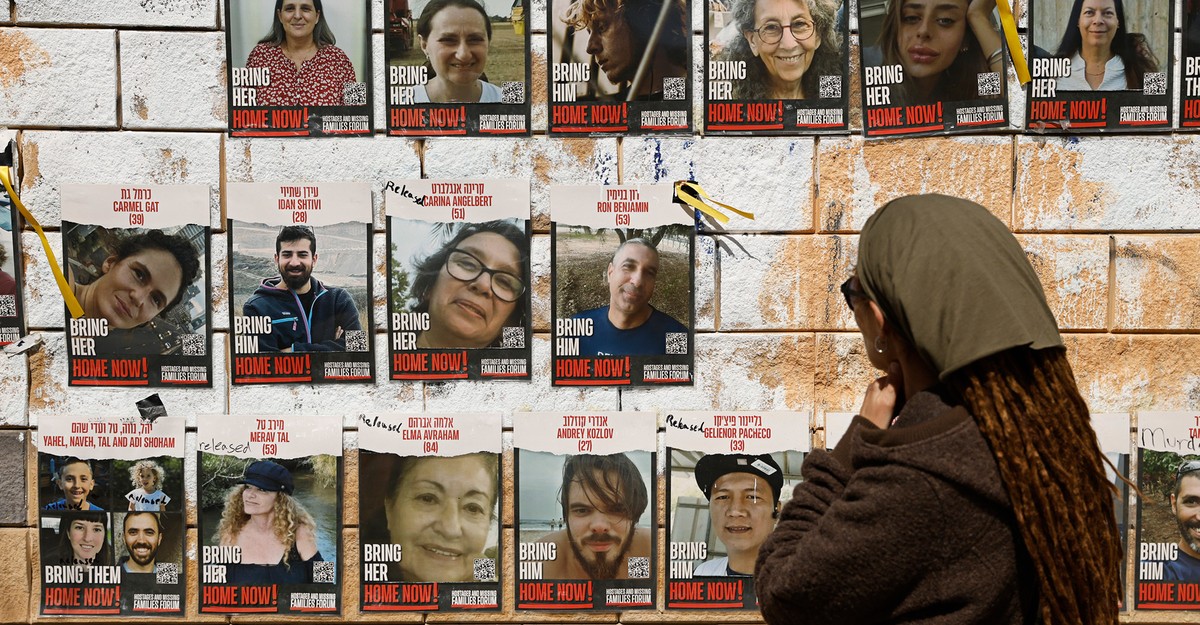Reading too much into the language seems, at this point, to be less of a danger than reading too little into it.
This week, Israel released an appalling video featuring five female Israeli soldiers taken captive at Nahal Oz military base on October 7. Fearful and bloody, the women beg for their lives while Hamas fighters mill around and alternately threaten to kill them and compliment their appearance. The captors call the women “sabaya,” which Israel translated as “women who can get pregnant.” Almost immediately, others disputed the translation and said sabaya referred merely to “female captives” and included no reference to their fertility. “The Arabic word sabaya doesn’t have sexual connotations,” the Al Jazeera journalist Laila Al-Arian wrote in a post on X, taking exception to a Washington Post article that said that it did. She said the Israeli translation was “playing on racist and orientalist tropes about Arabs and Muslims.”
These are real women and victims of ongoing war crimes, so it does seem excessively lurid to suggest, without direct evidence, that they have been raped in captivity for the past several months. (“Eight months,” the Israelis noted, allowing readers to do the gestational math. “Think of what that means for these young women.”) But to assert that sabaya is devoid of sexual connotation reflects ignorance, at best. The word is well attested in classical sources and refers to female captives; the choice of a classical term over a modern one implies a fondness for classical modes of war, which codified sexual violence at scale. Just as concubine and comfort woman carry the befoulments of their historic use, sabaya is straightforwardly associated with what we moderns call rape. Anyone who uses sabaya in modern Gaza or Raqqah can be assumed to have specific and disgusting reasons to want to revive it.
This is just straight up racist propaganda. No other way to describe it
sabaya is straightforwardly associated with what we moderns call rape
Absolutely factually incorrect. Sabaya is the plural of sabiye which means young woman/girl. The masculine form is sabi which means boy or shab for young man (not exactly symmetric like use of guy vs girl in english). Zero sexual connotation and used in everyday language in levantine arabic.
Yep. And the subheading I really have a problem with.
Reading too much into the language seems, at this point, to be less of a danger than reading too little into it.
The implication being that it’s low stakes to make this accusation without solid evidence. In reality the whole justification from the West for the state of affairs between Israel and Palestine is that Arabs are a bunch of backwards savages, and this extends to the way the West has acted throughout the Middle East.
Isn’t Sabaya just like Senorita where they indicate an unmarried young woman? Or, like, Miss?
Pretty much yes. (Ma)demoiselle vs madame are also used due to french influence over the region for singular use but sabaya is what you would use for a group of younger women with neswein being the alternative for older/married women.
Honestly, the use of the word “moderns” is enough to tell you it’s a racist interpretation.
You are confusing سبايا captives (male or female the word is genderless) with صبايا young women
At the time, I watched the video and I didn’t even catch the word so I thought the claim came from other footage and I was under the impression that it was deliberate misrepresentation of words. I went back to listen to the part where he says it but I still couldn’t make it out definitively (maybe that’s on me if you can).
They said هاي السبايا " those are captives".
The Arabic word for female slaves are إماء Imaa’ and جواري Jawari and singular female slave are أمة Amat and جارية Jariyat.
This article from November of last year would dispute your claim.
A group of young girls; صبايا
With the letter; Sad / ص
e.g. “girls / 9abaya” went out for a walk.
This word is not a conversation here, just for clarification. — A group of women/girls of war’s loot — (sex slaves); سبايا
With the letter; S/س
Sabaya سبايا which are literally the war’s loot of girls/women, and according to Islam is Halal.
The word “Sabaya” unequivocally means “women captives at war for sex”.
So both of those words are spelled sabaya when anglicized and while I will admit I was not familiar with the soft s variant because it’s antiquated (and still not necessarily sexual in meaning even if that one is debatable), it doesn’t sound like the man in the video who is supposed to have said that even said either of those words to me. I genuinely can’t even make out what the word he said is.
Why is this the subject of debate nearly 8 months after the fact?
Because the hostage families decided to release recovered footage to put additional pressure on getting them released.
Also, because I went down the rabbit hole trying to find info on this stuff, I think I’ll share additional evidence I gathered. Specifically that sabaya (or saby for short) has been used in the context of ISIS taking female slaves (often for sex).
From Infatuated with Martyrdom Female Jihadism from Al-Qaeda to the ‘Islamic State’

Clippings from Dabiq Magazine (English Language Magazine Published by ISIS):








From the infamous Reddit AMA: https://archive.ph/s2tqH

I see the publisher of the above is Friedrich Ebert Stiftung. Could you share a link in relation to how they perceive zionism?
After that link I literally added redacted screenshots of a primary source that was published by ISIS
It does not matter what the publisher of the document in the first link thinks about Zionism. I don’t know and I don’t care.
Ok, no link. I’ll go to another point.
You try to present arguments against Hamas by talking about ISIS. ISIS and Hamas are not interchangeable words, and Hamas is not ISIS.
Also even if I don’t speak any variation of arabic it is well known that words can have different meaning in different places in which the same language is officially spoken. We have many examples of english speaking people that use the same word differently, like very differently.
So what are you really trying to do?
Come back when you actually know something instead of vaguely gesturing at possibilities. My argument and sources were clear. I spent too much time digging already, and forgive me if I don’t want to spend even more time researching every suggestion for your 9 day old Lemmy account.
There is an obvious cultural connection between different Arabic Islamic extremist groups in the Middle East. Yes there will be cultural differences, and differences in dialect, but the meaning of this word isn’t one of them.
Yes, we all know Hamas is bad.
That justifies nothing Israel has done in this war.
As long as people realize it doesn’t justify Hamas’s action either
First of all, why does it matter what people realize? Will it stop more killing?
Secondly, I think the vast majority of people in this world understand that Hamas is a terrorist group that should not be supported.
People are supporting Palestinians, not Hamas.
Thank you. I think this nuance is often lost by those barely paying attention
I agree. Over 60% of Palestinian people (some of who are loosely affiliated with Hamas, some of who are friends and family with Hamas fighters, some who joined Hamas as they invaded Israel and some who are Hamas fighters) support Hamas and it’s very reasonable to assume these same people agree with the actions of Hamas (invading, mudering innocent people, kidnapping innocent people) on October 8. And yes it’s sometimes a very blurry line between an innocent civilian, a civilian giving support, a civilian carrying a weapon to supply to fighters, a civilians knowingly manufacturing items that are used by Hamas fighters and Hamas fighters.
Israel created this situation, perpetuates the violence and has a history of SA against Palestinians. Fuck Israel anyone who wants to shove Hamas into the conversation is braindead
Why?
.
Because no matter how you slice it one is the dominant partner here. Nobody is defending Hamas but people justify Israel.
Moronic
I find it moronic that as the default people seem to root for the underdog seemingly because they are the underdog and not because one side is morally superior than the other. They’re both shitty in their own ways
Nah don’t bomb brown kids and stop equating hamas to Palestinians foh
You shouldn’t rocket brown kids (many Israelis) either
Sabaya is plural for captives and is genderless, both male and female captives are Sabaya
You don’t have to take my word for it https://translate.google.com/?sl=ar&tl=en&text=سبايا&op=translate
The dictionary definition is:
سَبْي [مفرد]: الجمع: سُبِيّ (لغير المصدر): 1- مصدر سبَى. 2- مأسور “رجلٌ سَبْيٌ”. • السَّبْي: النِّساءُ؛ لأنهنّ يأسرن القلوب، أو لأنهنّ يُسْبَين. II سَبِيّ [مفرد]: الجمع: سَبايا، مؤنث: سَبِيّة وسَبِيّ، جمع مؤنث سَبايا: صفة ثابتة للمفعول من سبَى: مأسور، أسير “أُخذت نساءُ الأعداء سَبايا”.
The definition applies to men and women clearly. 2- مأسور “رجلٌ سَبْيٌ”.
Literally the word means taking something from a place to another, the below example shows how “wine” can be a sabyyah (feminine singular of sabaya) if it is carried from one country to another سَبَى الخَمْرَ،
السَّبْيُ: أَخْذُ شَيْءٍ مِنْ بَلَدٍ إلى بَلَدٍ آخَرَ قَهْراً، يُقال: سَبَى الخَمْرَ، يَسْبِيها، سَبْياً، أيْ: حَمَلَها مِنْ بَلَدٍ إلى بَلَدٍ. ويأْتي السَّبْيُ بِـمعنى الأسْرِ، يُقالُ: سَبَى العَدُوَّ سَبْياً وسِباءً: إذا أَسَرَهُ وأَخَذَهُ قَهْراً، فهو سَبِيٌّ، والأُنْثَى سَبِيَّةٌ ومَسْبِيَّةٌ، والنِّسْوَةُ سَبايا. ومِن مَعانيهِ أيضاً: الإِبْعادُ، ومِنْهُ قَوْلُهُم: سَباكَ اللهُ، أيْ: أَبْعَدَكَ.
The Arabic words for female slave are amat أمة and jariyat جارية , plural إماء Imaa’ and جواري Jawari
it does seem excessively lurid to suggest, without direct evidence, that they have been raped in captivity for the past several months
But you’re just going to do it anyway?
Racist Zionist propaganda.
Not to mention projection
but but but my MBFC rating!!111!
Late to this thread, but this is disturbingly similar to the media-bashing a French-Palestinian politician has received recently.
She tweeted something along the lines of “time for an uprising” before attending a conference. The following week+ of interviews with her party colleagues were filled with “did you know uprising in Arabic is intifada?! Why is your colleague calling for violence?!?!?!”
Her name is Rima Hassan if you’re interested.
I’m just going to copy & paste my response from an earlier post:
Never thought knowing Palestinian Arabic could become so useful. Sabaya is a very normal word to use for youngish women. Maybe in high Arabic it is a more specific term but in every day language no one in their right mind would think about anything related to pregnancy, that’s just ridiculous. Maybe it’s implied, just like it’s implied in “girl” or “young woman”, but that’s just a very desperate attempt to make it sound more than it actually is.
More background:
In Fusha (high Arabic) there are allegedly like 50 different names for a camel depending on what it’s up to. E.g. it has a different name when it’s drinking, sitting, pregnant, young, old, … very similar to cattle terminology in English: https://en.m.wikipedia.org/wiki/List_of_cattle_terminology
Why I’m mentioning this isn’t because I want to equate women to cattle (please don’t read this out of my comment, that’s not at all what I’m saying just to be very clear). I’m saying it because Arabic is a very rich and complex language. I really don’t know much about Fusha but it can very well be that sabaya means something more specific there in terms of what kind of women these sabaya are exactly. Anyway, even if that were the case in every day language no one would actually try to specifically mention that some woman is capable of getting pregnant.
Connotation also matters. Sabaya (or saby for short) was a specific term that ISIS used to refer to their female sex slaves.
It doesn’t matter what ISIS used because this isn’t ISIS. I speak Palestinian Arabic and صبايا means girls end of story. There’s nothing to argue about especially since you don’t even seem to speak Arabic.
Yes it does. Hamas isn’t some benevolent force of freedom fighters. The language and ideology of ISIS and Hamas are one and the same.
Sabaya سبايا has a specific meaning in the context and culture in which is was used. That meaning was used to degrade and frighten the captives. It’s by no means a stretch of the imagination to believe this
Arabic has lots of dialects. English has lots of dialects.
If a British person wants to “bum a fag” they want to cheeky “borrow” a cigarette. If an American wants to “bum a fag” they are using offensive terms for homosexual sex.
Dialects matter.
All of this is irrelevant because the guy did not use the word you’re talking about and that’s why it doesn’t make sense to argue with you.
You need to be able to speak the language to be able to distinguish between the letters ص and س.
Since you don’t speak the language you can’t hear the difference and I don’t know why you’re still trying to desperately cling onto this BS propaganda.
Best I can tell, other native Arabic speakers do not agree with what you say.
Source: x.com
Yeah, try again.
Would you accept a reputable long form publication?
It’s also not a stretch to believe that every damn thing Israeli government or the IDF says is a completely fabricated lie
They arent lying when an IDF Spokesperson comes on CNN or equivalent and the news anchor has direct orders from their boss to try to spin the IDF as the good guys but the IDF spokesperson keeps answering softball questions with responses like “well, actually the point is to slaughter all the Palestinians!” leaving the anchor flailing to keep their job.
The language and ideology of ISIS and Zios are exactly the same.
https://www.newsweek.com/isis-fighters-regret-attacking-israel-apologize-defense-minister-591020
What term do the zios use for their sex slaves?
The Atlantic – Bias and Credibility
Bias Rating: Left-Center
Factual Reporting: High
Country: USA
MBFC’s Country Freedom Rank: Mostly Free
Media Type: Magazine
Traffic/Popularity: High Traffic
MBFC Credibility Rating: High Credibility
I would normally agree, but when it comes to Israel, all bets are off, even for The Atlantic.
The Atlantic is anything but left in general.
The Atlantic is a liberal (aka right-wing) publication. They have many authors who are highly supportive of genocide.
You wanna know how credible any media is? Look at the receipts.
Where did they stand on Libya? Iraq? Afghanistan? Kosovo/Yugoslavia? Iraq the first time? Panama?
If the closest thing to criticism they did when it mattered was “maybe it could be done more competently”, they’re only free in the sense that they’re publishing what the state department wants for free.
MBFC is a joke that evaluates factuality based on how well it aligns with the state department. We already know this.
DolphinMath is a propagandist that uses MBFC to whitewash propaganda. We also already know this.






